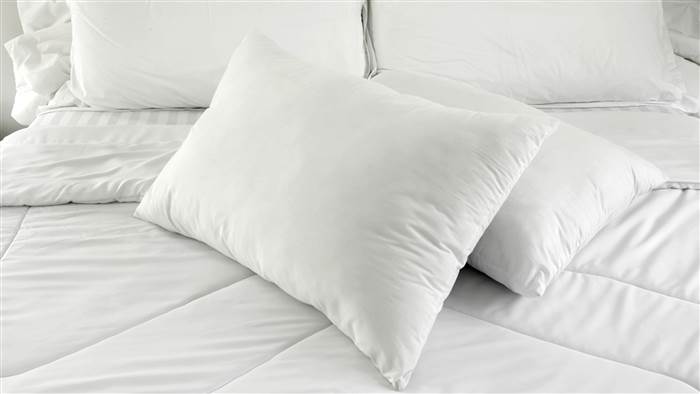“I’d start my days around 6 a.m. and I’d begrudgingly force myself to go to sleep at 2 or 3 a.m.,” said Shariat, a Los Angeles-based entertainment publicist.
Her big “aha” moment came around her 35th birthday, when she got into her car one night and found herself too exhausted to drive.
“I couldn’t keep my eyes open, I couldn’t focus on the road, and there was no way I could continue working the way I was,” she explained.
Shariat turned to sleep aids to help solve her problem. When that didn’t conquer her sleeping woes, she decided to try some lifestyle changes. The busy professional looked to the world Goop, Gwyneth Paltrow’s wellness bible, and found some tips on “clean sleeping.” Figuring she had nothing to lose, she attempted to give the trend a whirl.
What is clean sleeping?
In her latest book, Goop Clean Beauty, Paltrow raves about clean sleeping, often referring to it as the biggest health trend of 2017. In a nutshell, the concept involves making sleep a priority above anything else, including diet and fitness. And, according to the actress, it plays a crucial role in “determining your appetite and energy levels.”
It’s not her worst idea. The concept of prioritizing sleep certainly sits a lot better with professionals than many of the suggestions that have stemmed from Paltrow’s often-criticized lifestyle brand. In the past, Goop has recommended vaginal steaming to balance female hormones, sleeping with a $66 jade egg inside your vagina as a means of boosting feminine energy, and adding a teaspoon of Sex Dust (a blend of “superherbs that help combat the effects of stress”) to your morning smoothie.
Clean sleeping, experts say, is a quality habit to try to attain.
Paltrow “is absolutely correct about poor-quality sleep being shown to negatively effect weight and metabolism,” said Dr. Joseph Krainin, the chief medical adviser for SoClean, a company that sells equipment for sanitizing sleep apnea machines. “Regularly sleeping six hours or less is associated with weight gain and hyperglycemia, which can lead to type 2 diabetes. She is correct also about the negative effects of poor-quality sleep on mood and cognition, including working memory.”
There are, of course, many pieces to Paltrow’s clean sleeping essentials. The process doesn’t involve just hitting the pillow every night. Goop recommends sleep-inducing products and habits it claims help you get an optimal night’s rest, like massages and moisturizing creams.
Below is a selection of Goop’s advice on how to get clean sleep, with sleep experts’ take on what works and what you can probably leave behind.
Getting at least eight hours of sleep a night (ideally nine or 10)
“Most adults do not need nine to 10 hours of sleep a night,” explained Dr. Joseph Krainin, a neurologist in Charleston, South Carolina. He tells patients to opt for seven to eight hours, and warns that “some studies actually suggest a higher mortality among adults that habitually sleep any longer than that.”
Maintaining a consistent sleep schedule (and aiming to be in bed each night by 10 p.m.)
“Going to bed at the same time every night is important,” says Dr. Sujay Kansagra, director of Duke University’s Pediatric Neurology Sleep Medicine Program. “It keeps your internal circadian rhythm happy and makes it easier to fall asleep.”
He suggests, however, that instead of stressing out about trying to achieve an unrealistic goal of a strict 10 p.m. bedtime, that you find a time that works best for your individual schedule and stick to it.
Avoiding technology before bed
“Blue light from phones and iPads suppresses melatonin,” said Terry Cralle, a registered nurse and certified clinical sleep educator. “Also, all of that stuff you are looking at ― emails, news, political rants ― are not conducive to relaxation and sleep.”
Limiting afternoon caffeine
“Avoiding caffeine later in the day can definitely aid in a good night’s sleep,” Cralle confirmed.
Banning bedtime snacks and keeping a regular 12-hour fasting window in your day
Kansagra says not to eat too close to bedtime and just leave it at that. Fasting is not necessarily required.
Doing a fancy meditative practice called Yoga Nidra to reap the benefits of sleep without actually sleeping
“I have not seen evidence that anything ― aside from sleep ― can provide the beneficial effects of sleep,” Kansagra.


